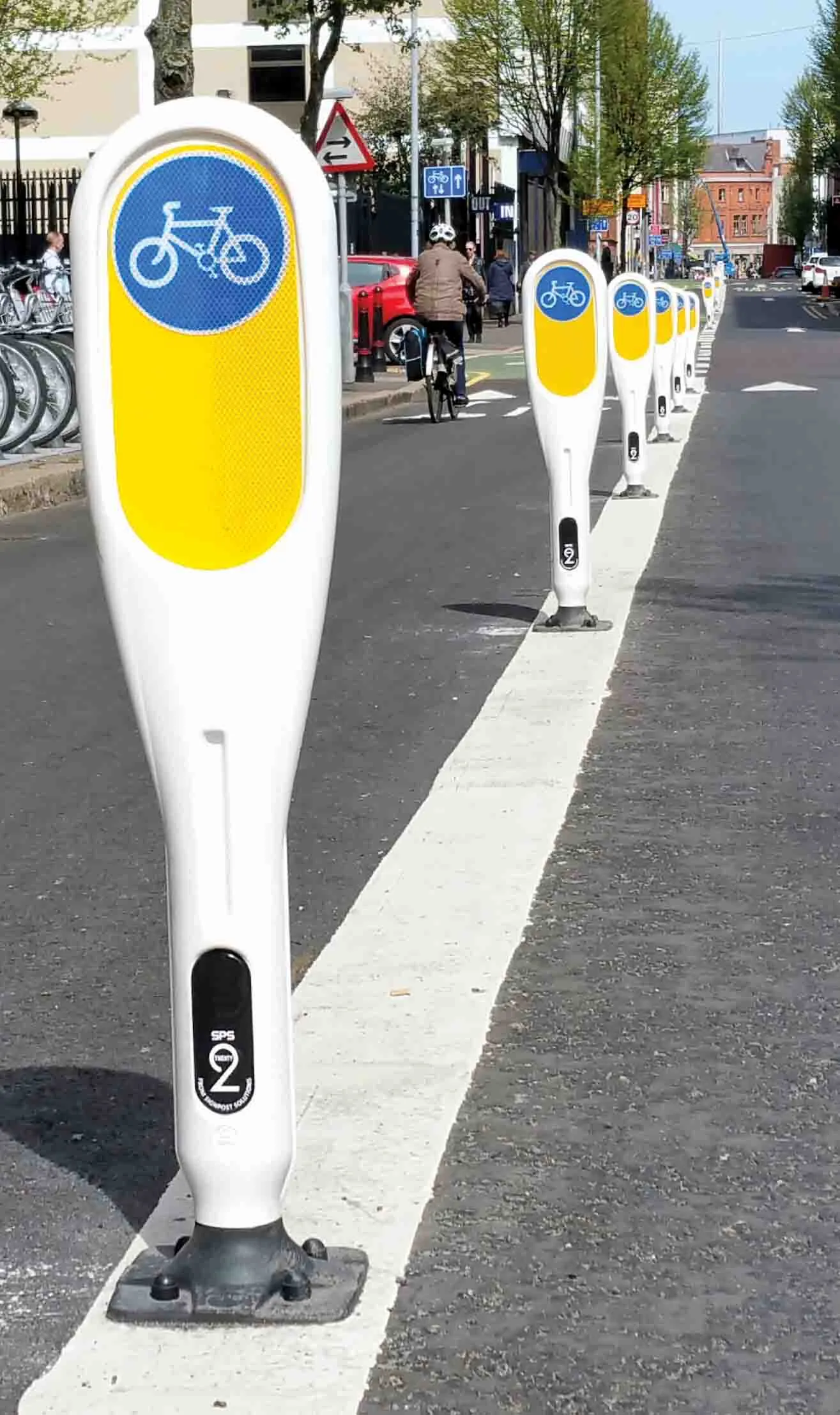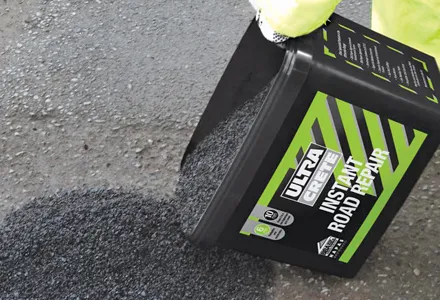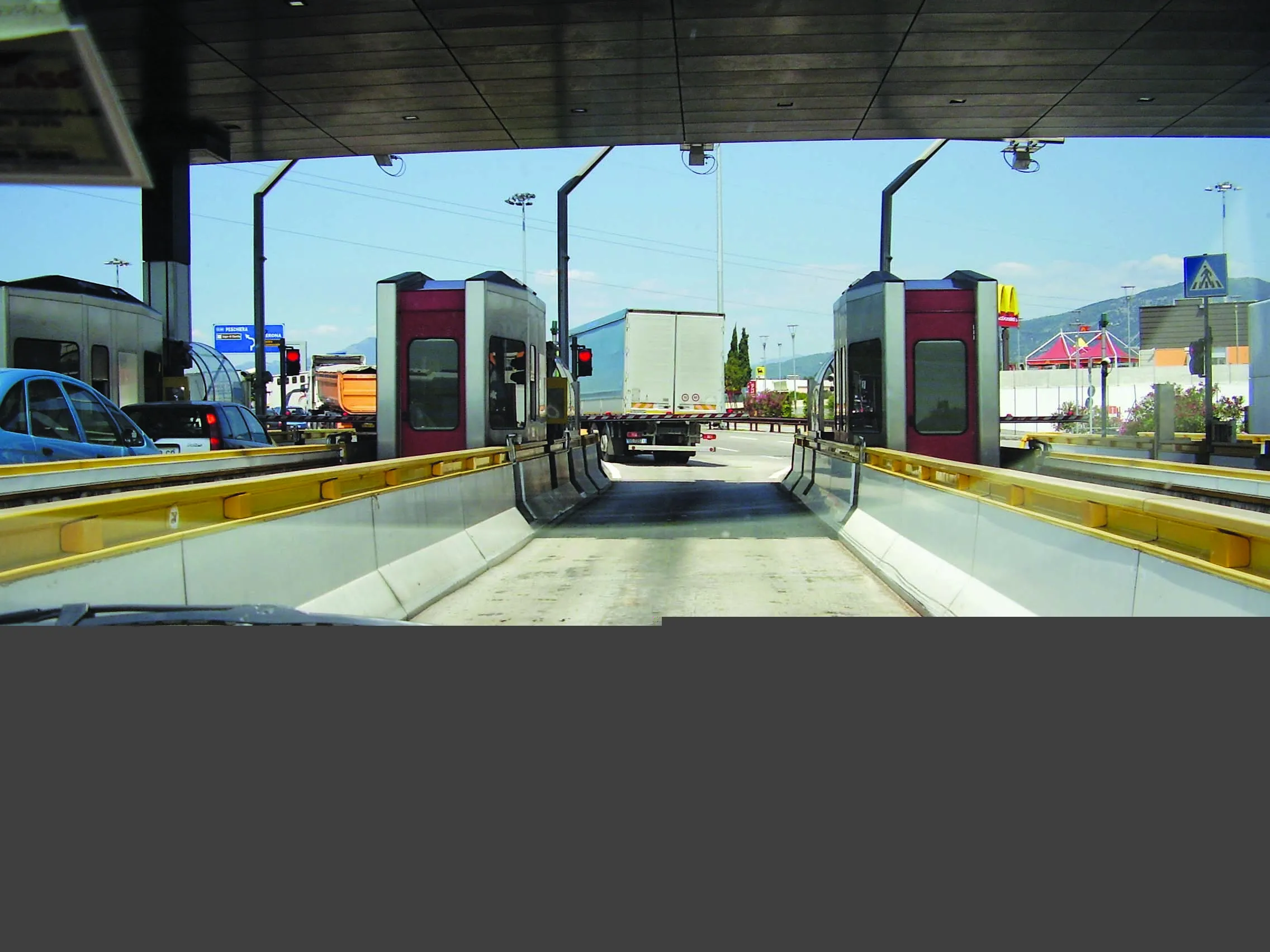Self-righting SPS 2Twenty bollards from SignPost Solutions are playing a central part in the major new Belfast Cycle Network being implemented in Belfast City centre
SignPost Solutions Signpost, part of the Swarco Group, says that its SPS 2Twenty is an easy to install, highly versatile and slim-line bollard specifically for cycle lanes and other applications where a path needs to be clearly, visibly and safely delineated.
Applications include car parks, hospitals, airports, train stations and supermar
January 25, 2017
Read time: 2 mins

Self-righting SPS 2Twenty bollards from 2439 SignPost Solutions are playing a central part in the major new Belfast Cycle Network being implemented in Belfast City centre
SignPost Solutions Signpost, part of the Swarco Group, says that its SPS 2Twenty is an easy to install, highly versatile and slim-line bollard specifically for cycle lanes and other applications where a path needs to be clearly, visibly and safely delineated.
Applications include car parks, hospitals, airports, train stations and supermarkets.
The main face of the bollard allows graphics to be customised and which are recessed and easy to clean. SignPost says that a synthetic low-profile rubber base delivers excellent levels of vandal and impact resistance. The absence of any springs or mechanical parts reduce the likelihood of failure and removes the need for costly servicing or repair.
Chris Nicklin, managing director of SignPost Solutions, says that Belfast chose the bollards for their flexibility in design and installation. “The distinctive SPS 2Twenty is a highly visible, stylish and effective means of separating traffic from cyclists and will go a long way to encouraging more cyclists onto the roads and improving cyclists’ safety,” he said.
SignPost Solutions Signpost, part of the Swarco Group, says that its SPS 2Twenty is an easy to install, highly versatile and slim-line bollard specifically for cycle lanes and other applications where a path needs to be clearly, visibly and safely delineated.
Applications include car parks, hospitals, airports, train stations and supermarkets.
The main face of the bollard allows graphics to be customised and which are recessed and easy to clean. SignPost says that a synthetic low-profile rubber base delivers excellent levels of vandal and impact resistance. The absence of any springs or mechanical parts reduce the likelihood of failure and removes the need for costly servicing or repair.
Chris Nicklin, managing director of SignPost Solutions, says that Belfast chose the bollards for their flexibility in design and installation. “The distinctive SPS 2Twenty is a highly visible, stylish and effective means of separating traffic from cyclists and will go a long way to encouraging more cyclists onto the roads and improving cyclists’ safety,” he said.









